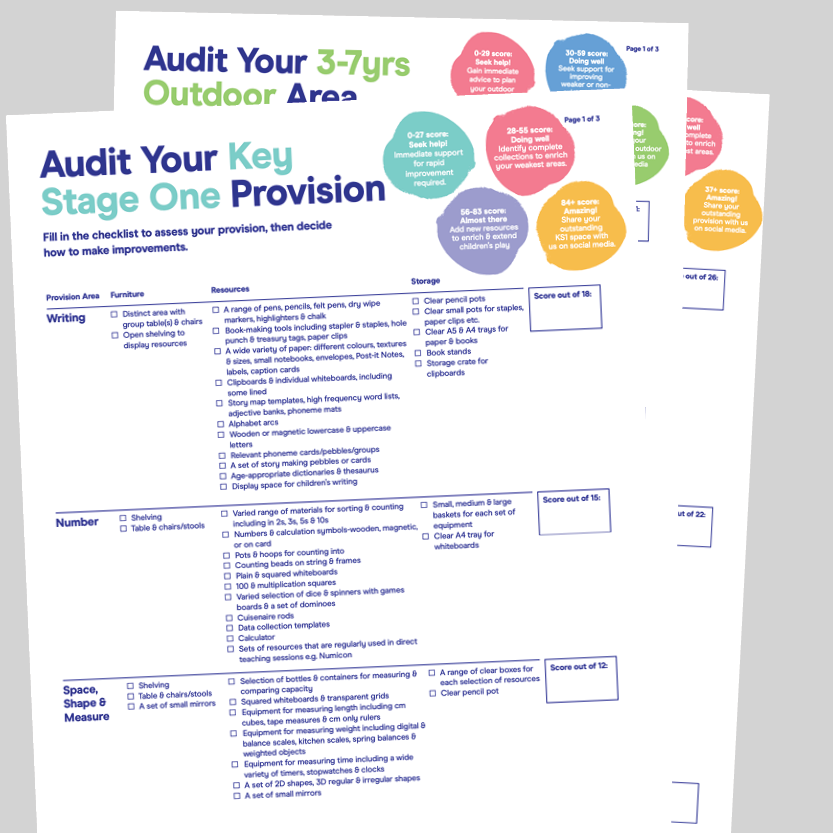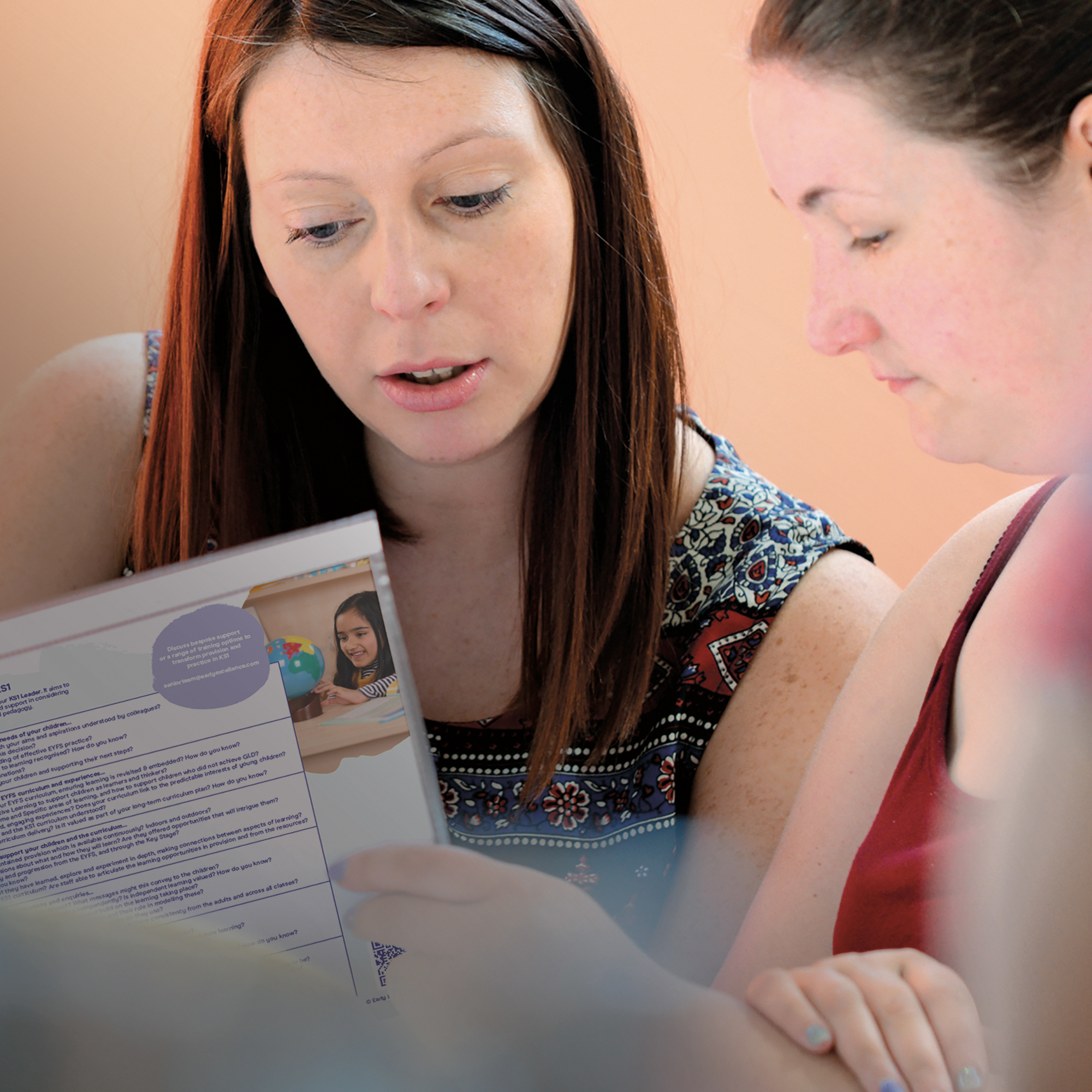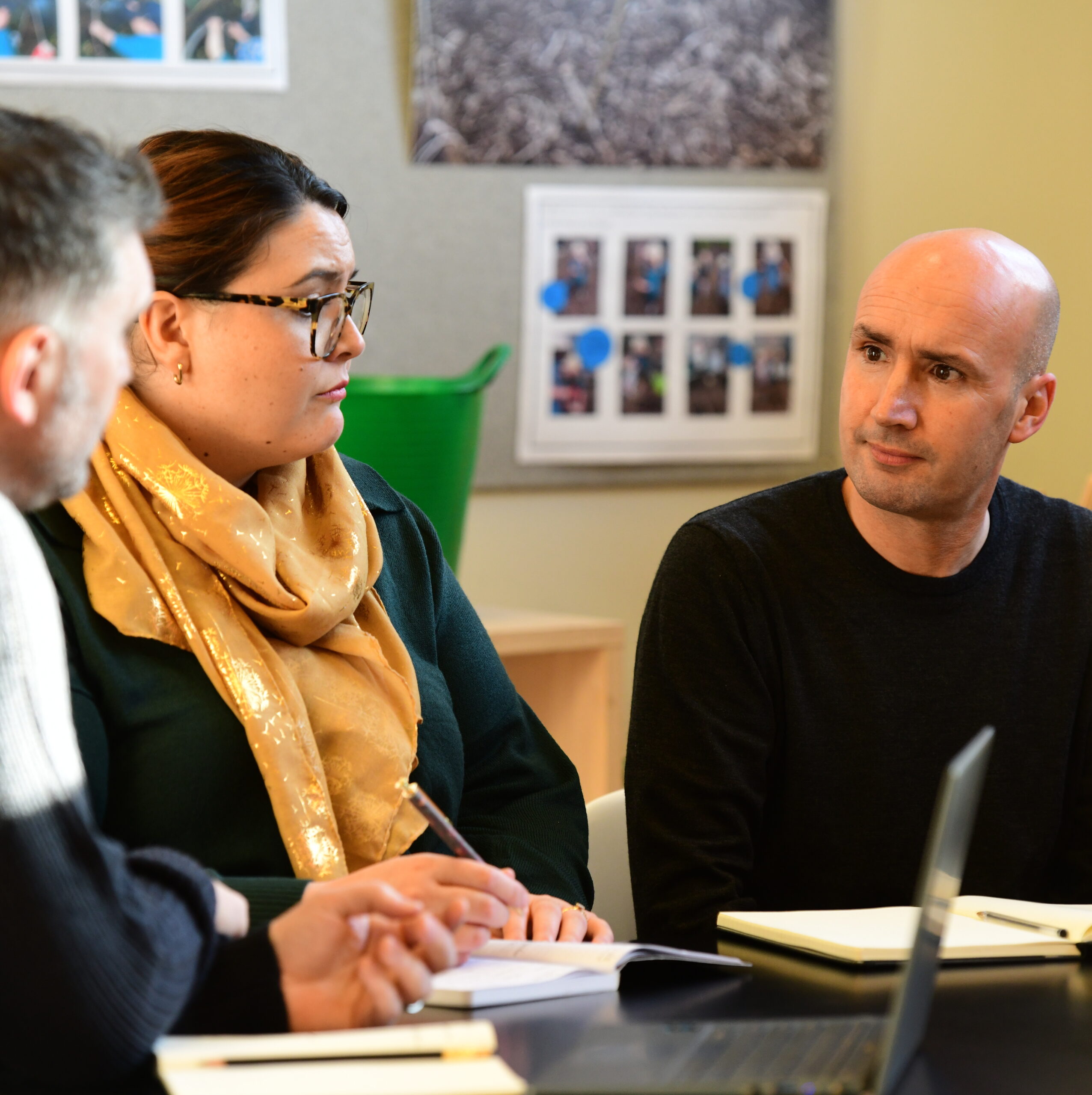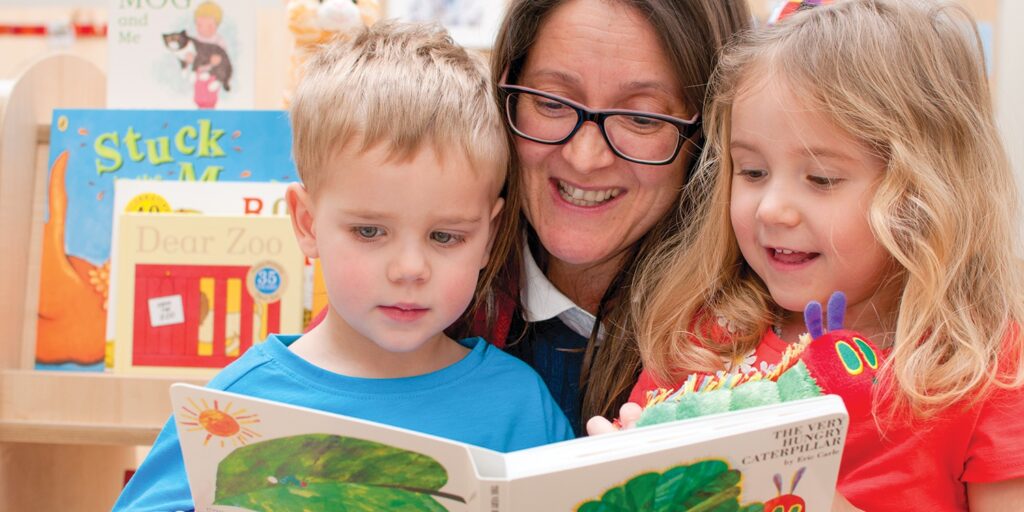Last week the DfE released three short videos titled Implementing the Early Years Foundation Stage Reforms. Using a combination of views from practitioners and leaders in Early Adopter schools and Ofsted, they aim to address a range of concerns and to offer a degree of reassurance.
The voices are positive and present the case that interaction is essential and that time for teaching should be maximised by moving away from an excess of iPad, post-its and assessment administration.
Whilst watching and listening, you will notice the use of more ‘formal’ classroom imagery in some of the clips; but there are plenty of examples of children independently accessing provision both indoors and outside – so hopefully an attempt to present a balanced perspective and expectation.
So, what are some of the messages we can take from the films?
There is a reaffirming throughout each film that a core aim of the revised EYFS is to remove the need for volumes of documentation to prove where children are with their learning and evidence any progress made. It also restates that the EYFS Profile must not be used as an accountability measure for teachers or schools.
The challenge it raises for practitioners, is to carefully consider what assessment processes we have in place and why?
The key message repeated by both the DfE and Ofsted, is that adults should be prioritising interactions; ensuring that these are high in quantity and consistently rich in quality. This has implications for staff knowledge around child development and the expertise of the whole team to translate this knowledge effectively into practice.
In terms of curriculum, the key message for schools is that the school curriculum starts when children first join in the Early Years. This, therefore, has significant implications for any whole school strategy relating to curriculum development and leadership; with the ongoing exploration and discussion of how key aspects of learning can be meaningfully and appropriately sequenced for young children, given what research tells us about how they learn.
It is still very early days with the revised EYFS, following an extraordinary two years for all. We are all developing our familiarity with the new framework, translating it into practice and evaluating its impact on our children’s learning. During this time there can be no doubt that the Early Adopter schools are a valuable resource, which we should all be eager to hear from.
The short film clips released by the DfE may bring us some reassurance about external expectations. However, with the continued discourse around ‘catch-up’ high, sweeping changes across the DfE, and multiple pressures across the sector; we wait to see if these positive messages are consistently translated into experiences.
Phil Armstrong
Head of Regional Development
Early Excellence
Find Out More

Audit your Early Years provision with our free online audit tools, and join schools across the country who are rethinking and developing their approaches to teaching and learning.

Explore our School Leader Reflection Tools for Reading and Writing to initiate high-quality, professional dialogues, focussed on teaching and learning.

Speak to one of our Curriculum Consultants to help you with designing a new space or an existing classroom. We will work with you to discuss your vision and design your rooms to create a vibrant learning environment.

